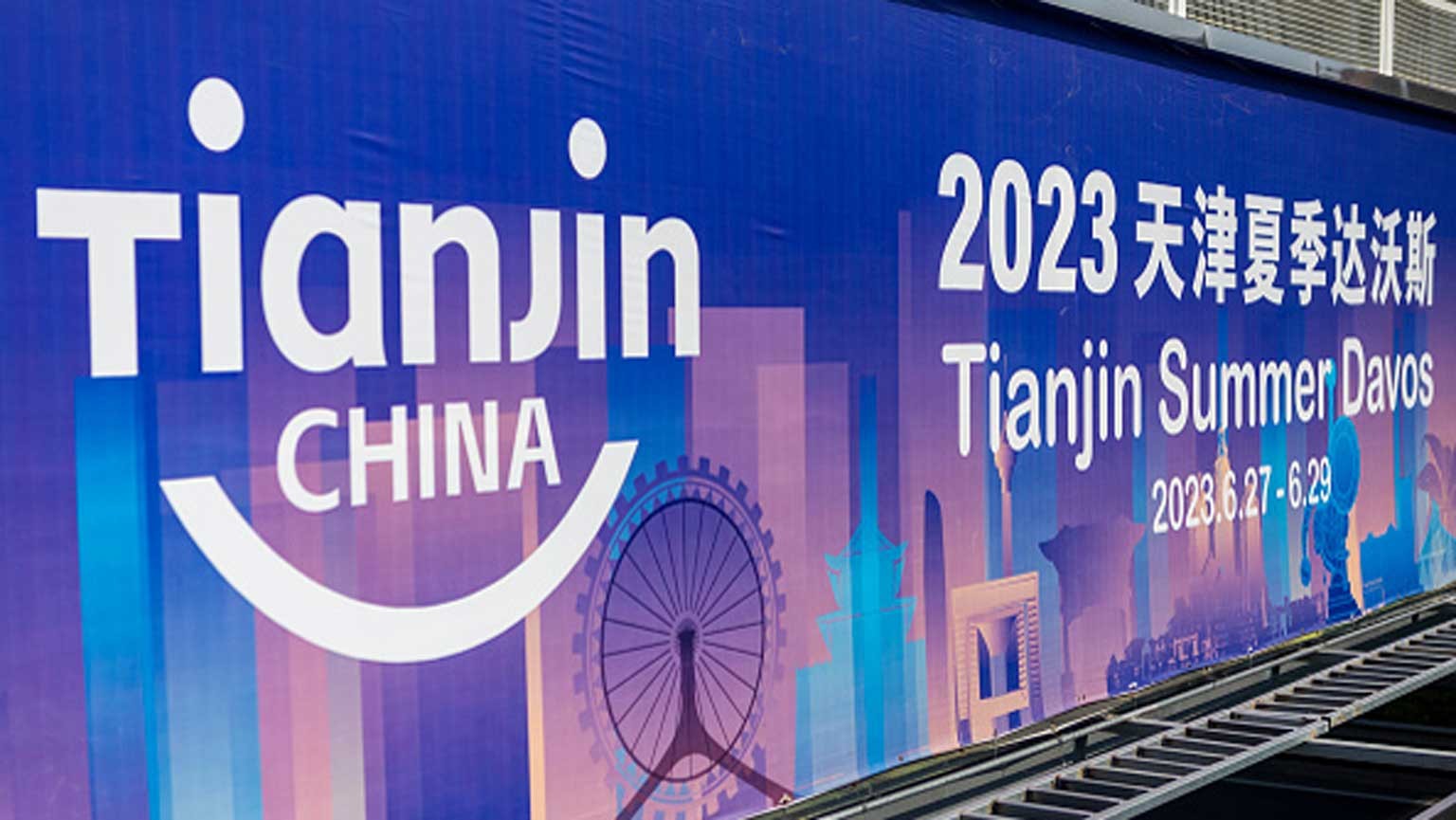In his keynote speech at the three-day World Economic Forum meeting, hosted by the port city Tianjin, Premier Li Qiang made it clear that China is determined to win over foreign enterprise. His country kept the world afloat during the pandemic, he said, and it would continue to be "a consistent source of dynamism for the global economy, driving its recovery and growth, while providing opportunities for win-win cooperation to investors from all countries."
The Western push to limit to business ties with China would only be counterproductive, Li warned. "We should oppose the politicization of economic issues and work together to keep global industrial and supply chains stable and smooth, and deliver the fruits of globalization to different countries and groups of people in a more equitable way."

Complicating factors
Beijing's campaign to entice global investors comes at a difficult time.
The US, supported by its allies, has introduced sweeping restrictions on sales of semiconductors and other high-tech materials to China.
Also rattling business confidence is a new anti-espionage law that Beijing introduced on July 1. The revised legislation bans the transfer of any information, including documents and data, related to China's national security and interests. Critics say the vague criteria make it difficult for companies to know when they are complying, and when they are in breach of the rules.
Since introducing the previous version of the law in 2014, Beijing has detained 17 Japanese people on spying charges. The tougher legislation is likely to make foreign companies even more hesitant about doing business in China.
Opening up
After three years behind closed doors and a strict "zero-COVID" policy that came at great cost to its economy, China is now eagerly opening up. But the recovery so far has been wobbly.
From January to March, the economy grew 4.5 percent from the same period last year. While consumer spending and infrastructure investment were big contributors, exports only grew by half a percent. The real estate market continues to struggle, and the youth unemployment rate is at around 20 percent.
The mood among young job seekers was summed up by a university student in Guangzhou, who told NHK that "it's hard to find a job. I feel like many companies are cutting their workforce and aren't taking on new staff."

China "must look outwards"
Some experts argue China should use foreign investment to drive growth higher.
"Many expected consumption and investment in China would see a big boost after the pandemic, and that demand would also increase as consumer attitudes improved," said Suzuki Takamoto, an economic research manager at Japanese trading house Marubeni China. "But that hasn't happened. There's a feeling of disappointment among people, and that's dragging down the overall economy."

Undeterred by Washington's technology-focused trade restrictions, Beijing is continuing to woo US tech giants.
Officials have recently hosted visits by the bosses of Tesla and Apple, both of which are considering expanding their Chinese operations. In June, Microsoft founder Bill Gates met with President Xi Jinping.
But with geopolitical ties as fraught as ever, and opaque Chinese legislation heightening the risks for outside investors, Beijing has its work cut out to convince foreign enterprise to commit.

